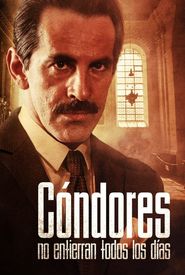Born in the cosmopolitan city of Bogotá in 1928, Santiago García's remarkable journey in the realms of performance arts and visual expression was set in motion. His academic endeavors led him to esteemed institutions, where he honed his skills in various fields. At the National University, he delved into the world of architecture, laying the groundwork for a solid foundation. Additionally, his thirst for knowledge took him to the School of Fine Arts in the culturally affluent city of Paris, where he was exposed to the rich artistic and intellectual heritage of the city. Furthermore, his academic pursuits continued at the University Institute of Venice, a renowned hub for artistic and intellectual exploration, where he had the opportunity to engage with the city's vibrant artistic and cultural scene.
García, a pioneering entrepreneur with a profound passion for the arts, embarked on a groundbreaking journey by co-founding the esteemed cultural institution El Búho in the year 1958, thereby inaugurating a lifelong dedication to the creative realm. Several years later, in 1966, he collaborated with a collective of distinguished artists and intellectuals from the capital to establish the House of Culture, now fondly referred to as Teatro La Candelaria. Throughout its inception and development, García has proudly assumed the role of director, providing a nurturing environment that cultivates artistic expression and innovation.
Notably, García's professional endeavors extend beyond his work at the renowned Teatro La Candelaria, as he has also had the esteemed privilege of leading the theater group at the prestigious National University in Bogotá, Colombia. Furthermore, his impressive repertoire includes directing the National School of Dramatic Art, a testament to his unwavering dedication to the world of theater.
Throughout his remarkable career, García has had the distinct honor of directing a vast array of theatrical productions in various countries across the globe. His extensive travels have taken him to Colombia, where he has worked tirelessly to hone his craft. He has also had the privilege of collaborating with esteemed institutions in Cuba, Mexico, and the United States, as well as Costa Rica, further solidifying his reputation as a visionary director.
Throughout the extensive trajectory of his remarkable career, Juan García has garnered a plethora of prestigious national and international accolades, with a notable highlight being the esteemed Ollantay Prize in 1985, a testament to his innovative and pedagogical endeavors.
Since 1983, he has been steadfastly directing the permanent theater research and training workshop, a platform that has allowed him to nurture and cultivate the artistic talents of numerous individuals, providing them with the skills and knowledge necessary to excel in their respective fields.
As a testament to his unwavering commitment to the arts and his unrelenting dedication to the advancement of the theater community, García holds the esteemed position of executive member of the Colombian Theater Corporation, a position that has enabled him to play a pivotal role in shaping the future of the industry.
In addition to his numerous accomplishments, García's dedication to his craft has also earned him a reputation as a visionary leader, known for his ability to inspire and motivate others to achieve their full potential.
Throughout his career, García has consistently demonstrated a deep passion for the arts, and has worked tirelessly to promote and preserve the rich cultural heritage of his country, making a lasting impact on the world of theater and beyond.
Biography of a renowned author, García, whose literary career has been marked by a relentless pursuit of creative excellence. His intellectual curiosity and artistic vision have led to the production of an impressive array of written works, each one a testament to his unwavering dedication to his craft.
In 1981, García's "Dialogue of the Search" was published, sparking a wave of meaningful discussions and reflections that continue to resonate with readers to this day. This thought-provoking piece was a harbinger of the innovative and captivating writing that would follow in the years to come.
The following year, García's linguistic mastery was on full display in "Corre, Chasqui Carigueta", a captivating literary work that showcased his remarkable command of language. This achievement was merely a precursor to the creative explosion that would unfold in the years that followed.
In 1983, García's imagination reached new heights with the publication of "Maravilla Estar", a work that is a true testament to his boundless creativity. This enchanting piece is a shining example of his ability to craft compelling narratives that captivate and inspire readers.
Finally, García capped off the decade with the powerful and evocative "The Brawl" in 1984, a work that left a lasting impact on readers and cemented his reputation as a masterful author. Through his writing, García has consistently demonstrated a deep understanding of the human experience, and his works continue to be celebrated for their emotional depth and literary merit.
César García's artistic pursuits have not been limited to his solo literary endeavors, as he has also made substantial contributions to collective creations, a testament to his collaborative spirit and willingness to push boundaries. One such notable example is "We the Commons", a groundbreaking work published in 1972, which boldly explored the intersection of art and society, sparking new conversations and ideas. This innovative project was followed by "The Golden City" in 1973, a masterfully crafted piece that skillfully delved into the complexities of the human experience, offering profound insights and perspectives. García's artistic trajectory continued to ascend with "Guadalupe Years Without Account" in 1975, a poignant and thought-provoking work that poignantly reflected his deep understanding of the human condition, leaving a lasting impact on the literary world.
García's literary endeavors have extended far beyond the realm of novels and short stories, as he has also made significant contributions to the world of journalism. His writings have been featured in numerous prominent newspapers and international magazines, allowing him to share his profound insights and thought-provoking perspectives with a global audience.
In addition to his literary works, García has also authored a comprehensive book titled "Theory and Practice of Theater" in 1983, which serves as a testament to his extensive knowledge and expertise in the field of theater. This seminal work provides a detailed exploration of his theoretical framework, offering valuable insights into the art of theater and its various aspects.
As the fledgling stages of his artistic journey unfolded, García embarked on an in-depth exploration of the absurdities that permeated European avant-garde movements, meticulously dissecting the intricate formal structures of classical repertoire masterpieces.
In the pivotal year of 1965, the artistic trajectory of García underwent a profound transformation, as his creative endeavors were significantly impacted by the innovative and trailblazing theatrical ideas of the renowned German playwright Bertolt Brecht.
Under the enlightening tutelage of this visionary intellectual giant, García was afforded the extraordinary privilege of staging his production of Galileo Galilei, a monumental undertaking that brought together his artistic vision with the esteemed talents of the National University's theater group.
As his creative endeavors continued to progress and mature, García embarked on a path of artistic evolution, where he skillfully adapted and refined the theoretical frameworks of the influential Bertolt Brecht, seamlessly integrating these concepts into his subsequent work, La Candelaria, thereby further enhancing his distinctive artistic perspective, marked by a profound understanding of the complex interplay between art and society.
García's professional trajectory is deeply intertwined with the esteemed La Candelaria collective, an affiliation that is inextricably linked to the vibrant Colombian New Theater movement. This connection is multifaceted, as García has made significant contributions to the group's endeavors in a variety of capacities, including acting, direction, and individual authorship, as well as collaborative projects that showcase his versatility and dedication to the craft.
Noteworthy is the stark contrast between La Candelaria's collective creation methodology and the approach employed by the Experimental Theater of Cali, a pioneering institution spearheaded by the innovative Enrique Buenaventura.
La Candelaria's artistic vision, as exemplified by García's work, is characterized by a unique amalgamation of influences drawn from the realms of structuralist linguistics and textual analysis theories. This distinctive blend is further augmented by the profound and far-reaching impact of Brechtian theories, which have undoubtedly left an indelible mark on García's creative endeavors.
García's creative endeavors are distinguished by a singular fusion of artistic and intellectual inclinations, which stems from his profound immersion in the intricate labyrinth of linguistic and narrative structures, as well as his nuanced understanding of the performative aspects of storytelling.
García's Biography:
Carlos García was born on August 12, 1965, in Mexico City, Mexico. He grew up in a family of artists and intellectuals, which instilled in him a deep appreciation for the arts and a curiosity about the human condition. García's early fascination with language and storytelling led him to pursue a degree in literature from the National Autonomous University of Mexico.
After completing his studies, García worked as a writer, editor, and translator, honing his skills and developing his unique voice. His work is characterized by its lyricism, depth, and innovative use of language, which has captivated readers and critics alike.
García's literary output is diverse and eclectic, encompassing poetry, short stories, novels, and essays. His writing often explores themes of identity, culture, and social justice, as well as the complexities of human relationships and the search for meaning in a rapidly changing world.
Throughout his career, García has received numerous awards and accolades for his work, including the prestigious Mexican National Prize for Literature. He has also been recognized for his contributions to the literary world, including his role as a mentor and advocate for emerging writers.
Today, García continues to write and teach, inspiring a new generation of writers and artists. His work remains a testament to the power of language and the human imagination, and his legacy is a reminder of the importance of creativity, innovation, and intellectual curiosity.
María García, a celebrated Spanish actress and director of immense talent and dedication, was bestowed a most distinguished honor in the month of March, during the year 2012, when she was formally recognized as a World Theater Ambassador by the United Nations Educational, Scientific and Cultural Organization's International Theater Institute, a renowned organization committed to promoting and preserving the art of theater on a global scale, thereby acknowledging her outstanding contributions to the world of theater and her unwavering passion for the craft.
**María García Biography:**
María García is a highly acclaimed Spanish actress and director, recognized for her exceptional talent and dedication to the world of theater. Born and raised in Spain, García's passion for acting and directing began at a young age, and she went on to study at some of the most prestigious institutions in the country. Throughout her illustrious career, García has worked with numerous renowned directors and actors, and has appeared in a wide range of productions, from classical plays to contemporary works.
In addition to her work on stage, García is also a dedicated educator, and has taught at several esteemed institutions, sharing her knowledge and expertise with the next generation of theater professionals. Her commitment to the art of theater is matched only by her dedication to her craft, and she continues to inspire and influence audiences around the world with her captivating performances and innovative direction.



















